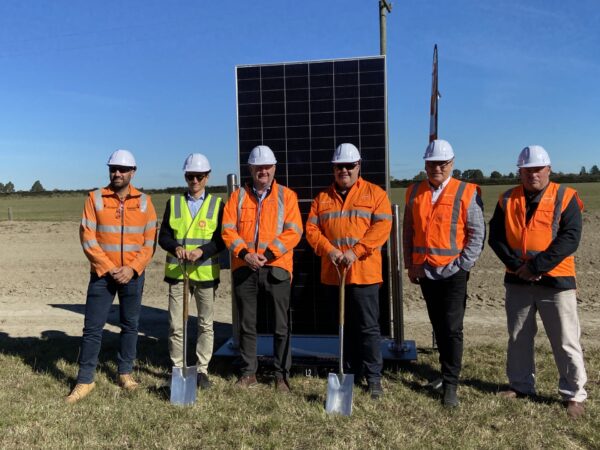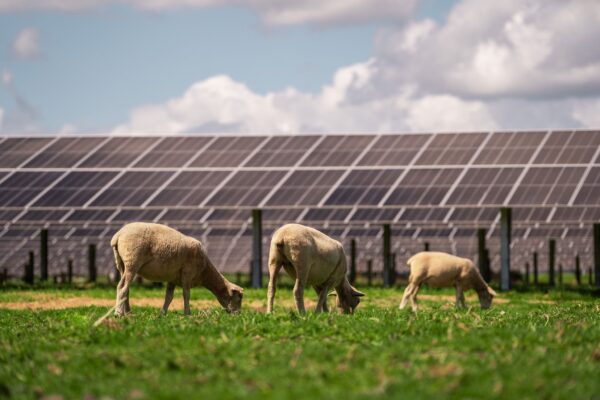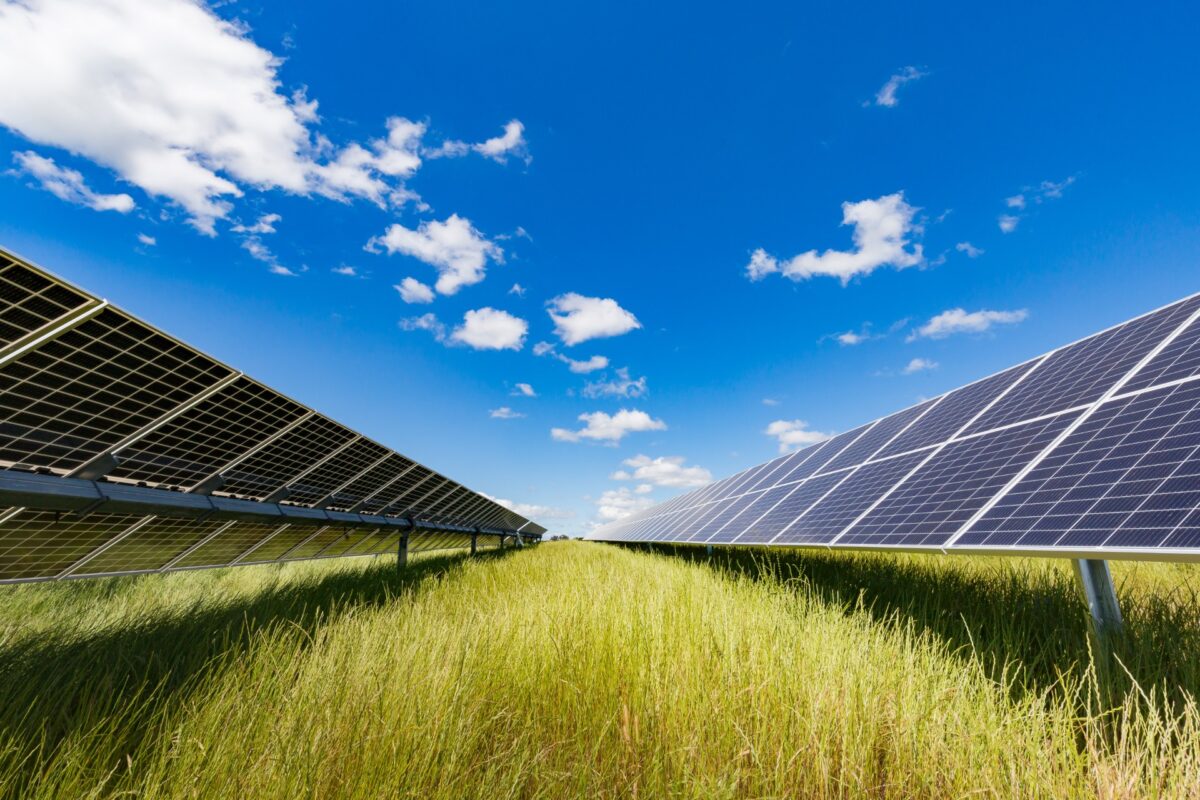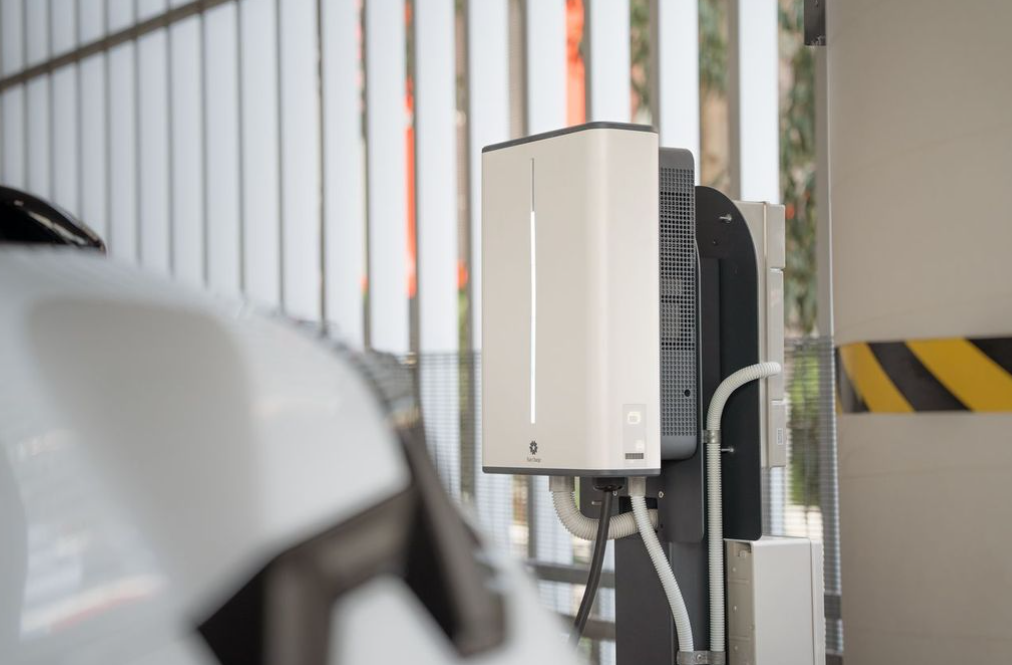The 47 MW Lauriston Solar Farm is expected to be generating electricity by the end of this year with FRV Australia, the local arm of global renewable energy developer Fotowatio Renewable Ventures, and Genesis Energy having officially launched construction of the project being built on the Canterbury Plains.
The approximately $100 million (USD 65 million) project is to comprise almost 90,000 solar panels spread across a 93-hectare site about 60 kilometres southwest of Christchurch with engineering, procurement, and construction (EPC) being provided by Australia’s Beon Energy Solutions, a subsidiary of Victoria Power Networks.
Once fully operational, the solar power plant will have the capacity to generate about 100 GWh of clean energy per year with New Zealand government-backed utility Genesis having committed to purchase 100% of the energy produced through a 10-year power purchase agreement.
Genesis Chief Executive Malcolm Johns said solar provides a strong alternative source of renewable generation to the country’s heavy reliance on hydro and will play a key role in achieving the country’s green energy targets.
“For New Zealand to reach net zero 2050 the country’s energy must become 60% electric, 95% renewable and available 100% of the time,” he said. “Solar has a clear role to play in this transition.”
“Solar energy from sites like Lauriston will also enable Genesis to reduce our generation emissions as we move to become net zero by 2040.”

Image: Genesis
FRV Australia CEO Carlo Frigerio said once completed, the Lauriston project will be the largest solar farm in New Zealand, and just the first in a series of projects planned by JV partners who plan to develop up to 500 MW of solar capacity in the country.
“Lauriston is just the beginning of our mission to bring together more solar projects to the country, powering a sustainable future for all,” Frigerio said.
In addition to the Lauriston project, the JV partners have also secured sites for three North Island solar farms with an expected combined capacity of 400 MW.
The Manawatu, Waikato and Hawke’s Bay projects have a provisional capacity of 200 MW, 100 MW and 100 MW respectively. The developers said the timing of the builds remains subject to regulatory processes, and final investment decision, with the first of the sites expected to be generating electricity by 2026.
Large-scale solar is still in its infancy in New Zealand but the development of grid-scale PV projects is accelerating.
The largest operational solar farm in the country is the 39.4 MW Kaitaia Solar Farm built near the town of the same name at the far north of the North Island. Developed by Lodestone Energy, the facility came online in December 2023.
Since then, Lodestone has been given the green light for three new projects – the 24 MW Clandeboye Solar Farm, 15 MW Mount Somers, and 72 MW Dunsandel solar farms – to be constructed in the Canterbury and South Canterbury regions on the South Island.
The three projects are part of a larger portfolio being delivered by Lodestone as part of the HES Aotearoa (HESA) joint venture.

Joint Australian and New Zealand venture Far North Solar Farm (FNSF) has also made progress on its large-scale solar plans, announcing that it has gained resource consent to build a 40.8 MWp solar farm near Marton on the North Island.
The Auckland-based company said the development brings the company’s total of consented solar farms to five, with the first in Pukenui already under construction and a second in Edgecumbe to follow later this year. Both projects are on the North Island.
“The Marton Solar Farm is the first in our second tranche of developments to receive resource consent,” FNSF Director Richard Homewood said, adding the company has three other active applications currently in play for several other large sites, including a 420 MW project in the Mackenzie Basin on the South Island.
Japan-headquartered renewables developer Bison Energy is also progressing development plans in New Zealand, announcing it is commencing its first two projects in the country: the 30 MW Somerton and 100 MW Norwood solar farms, both near Christchurch on the South Island.
United Kingdom-based Island Green Power has also been given the go-ahead for the 146 MWp Rangiriri and 190 MWp Waerenga solar farms being in the Waikato region on the upper North Island.
This content is protected by copyright and may not be reused. If you want to cooperate with us and would like to reuse some of our content, please contact: editors@pv-magazine.com.









By submitting this form you agree to pv magazine using your data for the purposes of publishing your comment.
Your personal data will only be disclosed or otherwise transmitted to third parties for the purposes of spam filtering or if this is necessary for technical maintenance of the website. Any other transfer to third parties will not take place unless this is justified on the basis of applicable data protection regulations or if pv magazine is legally obliged to do so.
You may revoke this consent at any time with effect for the future, in which case your personal data will be deleted immediately. Otherwise, your data will be deleted if pv magazine has processed your request or the purpose of data storage is fulfilled.
Further information on data privacy can be found in our Data Protection Policy.